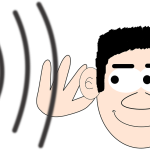What is Cannabinoid Hyperemesis Syndrome (CHS)?

Cannabis, often regarded as a therapeutic and recreational substance, has witnessed a surge in popularity and acceptance in recent years. However, amidst the debates surrounding its medicinal benefits and legal status, a peculiar and lesser-known phenomenon has emerged—Cannabinoid Hyperemesis Syndrome (CHS).
This mysterious condition, characterized by severe bouts of nausea and vomiting, has raised eyebrows within the medical community. Cannabinoid Hyperemesis Syndrome (CHS) was first formally described in medical literature by Dr. Allen and colleagues in 2004. The team of researchers, led by Dr. Bryan S. Allen, published a case series in the journal “Emergency Medicine Australasia,” documenting a group of patients who experienced cyclical vomiting associated with chronic cannabis use. The publication, titled “Cannabinoid Hyperemesis: Cyclical Hyperemesis in Association with Chronic Cannabis Abuse,” marked the initial recognition and characterization of this unique syndrome. Since then, CHS has gained attention within the medical community as a distinct clinical entity associated with cannabis use.
In this comprehensive blog article, we will delve into the intricate details of CHS, exploring its symptoms, causes, diagnosis, and potential treatment options.
Understanding Cannabinoid Hyperemesis Syndrome
CHS is a clinical condition that manifests as cyclical episodes of nausea, vomiting, and abdominal pain in individuals who are chronic and long-term users of cannabis. This syndrome was first described in medical literature in 2004 by Allen and colleagues, and since then, it has become a subject of growing interest among healthcare professionals.
Symptoms of CHS
The hallmark symptoms of CHS are intense and recurrent bouts of vomiting, which can last for hours or even days. Individuals with CHS often experience abdominal pain and find temporary relief in hot showers or baths. Interestingly, this unique symptomatology has led to CHS being classified into three distinct phases:
1. Prodromal Phase: Unveiling the Early Signs
The prodromal phase of Cannabinoid Hyperemesis Syndrome (CHS) unfolds gradually, marked by a prolonged history of cannabis use spanning several years. During this phase, users may notice the emergence of subtle yet unsettling symptoms, such as morning nausea and abdominal discomfort. These early warning signs serve as a precursor to the more severe manifestations that follow. As time elapses, the frequency and severity of these symptoms tend to escalate, laying the foundation for the more acute phases of CHS.
2. Hyperemetic Phase: The Intense Battle Within
The hyperemetic phase represents the crescendo of CHS, characterized by an acute onset of severe nausea and vomiting. Individuals grappling with CHS find themselves in the throes of uncontrollable vomiting, which can persist for hours or even days. This relentless vomiting takes a toll on the body, often leading to dehydration and imbalances in electrolytes. Amidst the distress, a peculiar behavior emerges—patients instinctively turn to hot showers or baths for relief. The exact mechanism behind this phenomenon remains a subject of research, but the temporary solace it provides underscores the uniqueness of this phase.
3. Recovery Phase: Navigating the Path to Wellness
Following the cessation of cannabis use, the recovery phase commences, offering a glimmer of hope for those afflicted by CHS. During this period, individuals often experience a gradual alleviation of symptoms, with a return to normalcy within a few days to weeks. However, the road to recovery is not without its challenges. It becomes evident that resuming cannabis consumption can reignite the cycle, emphasizing the intricate link between CHS and cannabis use. This phase underscores the importance of abstinence and serves as a crucial period for individuals to reevaluate their relationship with cannabis.
Potential Causes of Cannabinoid Hyperemesis Syndrome (CHS)
As Cannabinoid Hyperemesis Syndrome (CHS) continues to baffle the medical community, several hypotheses have been proposed to shed light on the elusive mechanisms triggering this enigmatic condition. While the exact cause remains unclear, the following theories offer intriguing insights into the potential origins of CHS:
1. Cannabinoid Toxicity: One prominent hypothesis implicates cannabinoid toxicity, specifically focusing on prolonged exposure to THC (tetrahydrocannabinol), the psychoactive component of cannabis. It is theorized that as individuals engage in long-term cannabis use, THC may accumulate in the body, exerting toxic effects on the gastrointestinal system. This accumulation could lead to disturbances in the normal functioning of the digestive tract, culminating in the characteristic symptoms of CHS. The intricate relationship between THC levels and the gastrointestinal system forms a crucial aspect of understanding CHS, emphasizing the potential risks associated with extended cannabis consumption.
2. Effects on the Endocannabinoid System: Another hypothesis explores the role of chronic cannabis use in dysregulating the endocannabinoid system, a complex network of receptors and neurotransmitters that play a vital role in maintaining physiological balance or homeostasis. The theory suggests that prolonged exposure to cannabinoids may disrupt this delicate equilibrium, leading to imbalances within the endocannabinoid system. These disruptions could contribute to the development of CHS, as the system’s regulatory functions extend to various bodily processes, including digestion and nausea. Understanding the intricate interplay between cannabinoids and the endocannabinoid system provides a nuanced perspective on the potential origins of CHS.
3. Hypothalamic Dysfunction: A third avenue of investigation explores the intriguing possibility of hypothalamic dysfunction as a contributing factor to CHS. The hypothalamus, a key region in the brain, orchestrates a myriad of bodily functions, including temperature regulation and nausea control. Studies suggest that dysfunction in this vital brain region might be associated with the onset of CHS. This hypothesis opens a window into the complex relationship between cannabis use and neurological processes, providing a potential link between the psychoactive effects of cannabinoids and the intricate balance of brain functions. As research in this area progresses, a deeper understanding of the role of the hypothalamus in CHS may offer novel insights into the condition’s pathogenesis.
Diagnosis of Cannabinoid Hyperemesis Syndrome (CHS)
Diagnosing CHS can be challenging due to its unique presentation and the fact that symptoms often overlap with other gastrointestinal disorders. Healthcare professionals typically consider the following factors when diagnosing CHS:
1. Clinical History: A detailed history of cannabis use, including the frequency, duration, and method of consumption, is crucial for diagnosis.
2. Physical Examination: Healthcare providers will conduct a physical examination to assess symptoms such as abdominal tenderness and signs of dehydration.
3. Laboratory Tests: Blood and urine tests may be performed to rule out other potential causes of vomiting and abdominal pain.
4. Imaging Studies: In some cases, imaging studies such as abdominal CT scans may be ordered to exclude other gastrointestinal conditions.
Treatment Strategies for Cannabinoid Hyperemesis Syndrome (CHS)
Addressing Cannabinoid Hyperemesis Syndrome (CHS) requires a multi-faceted approach, with the primary focus being the discontinuation of cannabis use. Beyond abstinence, several treatment strategies aim to alleviate symptoms and provide support to individuals grappling with CHS:
1. Supportive Care: Replenishing and Stabilizing
Supportive care forms the cornerstone of CHS management, addressing the immediate physical repercussions of severe vomiting and dehydration. Intravenous fluids play a pivotal role in replenishing electrolytes and fluids lost during extended bouts of vomiting. This intervention is crucial for preventing complications and ensuring the body returns to a state of hydration and balance. Additionally, antiemetic medications are administered to control nausea and vomiting, offering relief and promoting the recovery process.
2. Topical Capsaicin Cream: Harnessing the Power of Heat
An intriguing avenue explored in CHS treatment involves the use of topical capsaicin cream, derived from chili peppers. While the exact mechanism remains under investigation, some studies suggest that applying capsaicin cream to the abdomen may provide relief from CHS symptoms. Capsaicin, known for its heat-producing properties, may interact with sensory nerves, potentially interrupting the signals that contribute to nausea and abdominal discomfort. This non-traditional approach offers a unique perspective on symptom management and underscores the diversity of strategies employed to address CHS.
3. Counseling and Support: Nurturing Mental Well-Being
Recognizing the intertwined nature of physical and mental health, counseling and support play a crucial role in CHS treatment. Mental health support becomes particularly significant for individuals struggling with cannabis dependence, as addressing the psychological aspects of addiction is essential for long-term recovery. Counseling sessions provide a safe space for individuals to explore the factors contributing to their cannabis use, develop coping mechanisms, and establish a foundation for sustained abstinence. The holistic approach of integrating mental health support into CHS management reflects a comprehensive understanding of the challenges faced by individuals affected by this syndrome.
As the medical community continues to refine its approach to CHS treatment, these strategies collectively aim to provide relief, promote recovery, and address the underlying factors contributing to the syndrome. The intersection of traditional and unconventional methods underscores the complexity of CHS and the necessity for a personalized and adaptable treatment plan. With ongoing research and a commitment to patient-centered care, the hope is to optimize the management of Cannabinoid Hyperemesis Syndrome, ultimately improving the quality of life for those navigating
Prevention and Education
Preventing CHS involves raising awareness about the potential risks associated with chronic cannabis use. Healthcare providers and public health campaigns can play a crucial role in educating individuals about the symptoms of CHS and the importance of seeking medical attention if they experience persistent vomiting and abdominal pain.
Conclusion
Cannabinoid Hyperemesis Syndrome remains a fascinating and perplexing medical phenomenon. As cannabis continues to gain acceptance for its medicinal and recreational uses, understanding the potential risks, such as CHS, becomes paramount. As research in this field continues to evolve, the medical community and the public alike must remain vigilant, ensuring a balanced perspective on the use of cannabis and its potential impact on health.





